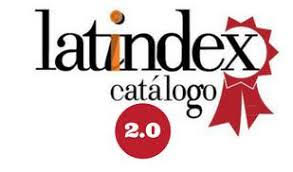Estudio térmico de muros ventilados tradicionales en condiciones climáticas tropicales del Catatumbo, Norte de Santander, Colombia
DOI:
https://doi.org/10.22320/07190700.2024.14.02.01Palabras clave:
ventilación, transferencia de calor, simulación, materiales de construcciónResumen
La propuesta de investigación está orientada a identificar una serie de tipologías de muros de cerramiento ventilados tradiciones del mercado de la construcción, como calados, celosías y paneles metálicos con el fin de desarrollar un estudio térmico bajo condiciones climáticas del Catatumbo en Norte de Santander, Colombia. La metodología es teórica a través de simulaciones de transferencia de calor bajo el método de elementos finitos en ANSYS para identificar la relación entre la permeabilidad de superficies y la incidencia en el comportamiento de temperaturas y flujos de calor. Los resultados exponen que las tipologías más permeables, como calados y celosías, registran menos transferencia de energía y temperatura a las tipologías menos permeables, como los paneles metálicos. Además, demostró que existen otros factores como forma y propiedades térmicas de los materiales que conforman las unidades constructivas. Finalmente, el estudio térmico de muros ventilados consolida información técnica de alternativas de cerramiento tradicionales como guía de diseño y planificación de viviendas y edificaciones en zonas de posconflicto, con el fin de promover el confort y la calidad del hábitat en la población mencionada.
Descargas
Citas
ÁLVAREZ RODRÍGUEZ, M. DE LA O. (2022). Actuaciones para la mejora de la ventilación de espacios públicos en la Comunidad de Madrid. Revista de Salud Ambiental, 22(Especial Congreso), 70-73. https://ojs.diffundit.com/index.php/rsa/article/view/1189
ATKINSON, J., CHARTIER, Y., PESSOA-SILVA, C. L., JENSEN, P., LI, Y., y SETO, W.-H. (2009). Natural Ventilation for Infection Control in Health-Care Settings. Editorial World Health Organization (WHO), https://iris.who.int/bitstream/handle/10665/44167/9789241547857_eng.pdf?sequence=1
ATSONIOS, I., MANDILARAS, I. y FOUNTI, M. (2019). Thermal assessment of a novel drywall system insulated with VIPs. Energies, 12(12), 2373. https://doi.org/10.3390/en12122373
BALTER, J., GANEM, C., y BAREA, G. (2020). Mejoras en el desempeño energético de edificios en verano mediante la integración de envolventes ventiladas en fachadas norte y cubiertas. El caso de Mendoza, Argentina. Hábitat Sustentable, 10(2), 94-105. http://dx.doi.org/10.22320/07190700.2020.10.02.07
BATTERMAN, S., SU, F.-C., WALD, A., WATKINS, F., GODWIN, C., y THUN, G. (2017). Ventilation rates in recently constructed U.S. school classrooms. Indoor Air, 27(5), 880–890. https://doi.org/10.1111/ina.12384
CALAMA-GONZÁLEZ, C. M., LEÓN-RODRÍGUEZ, Á. L., y SUÁREZ, R. (2019). Indoor Air Quality Assessment: Comparison of Ventilation Scenarios for Retrofitting Classrooms in a Hot Climate. Energies, 12(24), 4607. https://doi.org/10.3390/en12244607
CEDEÑO QUIJADA, M., SOLANO, T., MORA, D., y CHEN AUSTIN, M. (2022). Evaluación del desempeño de sistemas de ventilación en salones de clase: Estudio numérico en edificios universitarios en Panamá. Novasinergia, 5(1), 100-127. https://doi.org/10.37135/ns.01.09.07
ÇENGEL, Y. (2007). Transferencia de Calor y Masa, un Enfoque Práctico. McGraw-Hill Interamericana Editores S.A. https://blogs.ugto.mx/wp-content/uploads/sites/71/2022/01/Transferencia-de-calor-y-masa.-Un-enfoque-practico-paginas-111-y-112.pdf
COLMENARES-URIBE, A. P., SÁNCHEZ MOLINA, J., DÍAZ FUENTES, C. X., y SÁNCHEZ ZÚÑIGA, J. V. (2023). El diseño de producto cerámico como estrategia de mitigación de transferencia de calor en envolventes arquitectónicas. Eco Ediciones S.A.S. https://repositorio.ufps.edu.co/handle/ufps/6714
FUENTES-FREIXANET, V. A. (2013). Estimación de la radiación solar incidente. Universidad Autónoma Metropolitana: Unidad Azcapotzalco. México.
GIRALDO, W., y HERRERA, C. A. (2017). Ventilación pasiva y confort térmico en vivienda de interés social en clima ecuatorial. Ingeniería y desarrollo, 35(1), 77-101. https://www.redalyc.org/articulo.oa?id=85248898006
GÓMEZ-PORTER, P. F. (2021). La vivienda colectiva de la modernidad en tiempos de COVID19 aportaciones del paradigma habitacional. Arquitecturas del Sur, 39(59), 28-43. http://dx.doi.org/10.22320/07196466.2021.39.059.02
GoogleEarth. (2023). Localización geográfica del municipio de Ocaña en el departamento de Norte de Santander, Colombia. https://earth.google.com/earth/d/1S7XJoqbNWkhLDrPfiICKrTl7RJUJwAyM?usp=sharing
INDUARCILLA. (2020). Catálogo de Productos en Gres del Área Metropolitana de San José de Cúcuta, Colombia.
IDEAM (2010). Promedio climatológico de Colombia 1981-2010 (Colombia: Instituto de Hidrología, Meteorología y Estudios Ambientales). URL: http://www.ideam.gov.co/
JANSZ, J. (2017). Sick building syndrome en S. R. Quah (Ed.), International Encyclopedia of Public Health (Second Edition). Oxford: Academic Press. https://doi.org/10.1016/B978-0-12-803678-5.00407-0
JI, Y., LOMAS, K. J. y COOK, M. J. (2009). Hybrid ventilation for low energy building design in south China. Building and Environment, 44(11), 2245–2255. https://doi.org/10.1016/j.buildenv.2009.02.015
La Opinión (2021). Obtiene su primer patente, el programa de Arquitectura de la UFPS. (Cúcuta: La Opinión). https://www.laopinion.co/cucuta/obtiene-su-primer-patente-el-programa-de-arquitectura-de-la-ufps
MERCADO, M. V., BAREA-PACI, G. J., ESTEVES, A., y FILIPPÍN, C. (2018). Efecto de la ventilación natural en el consumo energético de un edificio bioclimático. Análisis y estudio mediante energy plus. Hábitat Sustentable, 8(1), 54-67. http://dx.doi.org/10.22320/07190700.2018.08.01.05
METEORED (2023). Meteored: Weather forecast – Temperature. Tiempo. https://www.meteored.com/
PACHECO OCHOA, V., JIMÉNEZ PÉREZ, A.L., y RAMÍREZ PÉREZ, J. (2021). Impacto de la luz y la ventilación natural en el ambiente laboral sobre el síndrome del edificio enfermo y la productividad. UNESUM-Ciencias. Revista Científica Multidisciplinaria, 5(4), 97-108. https://doi.org/10.47230/unesum-ciencias.v5.n4.2021.581
RAMÍREZ-SÁNCHEZ, D. O. (2020). Aprovechamiento de propiedades térmicas de materiales ancestrales usados en la construcción de edificios en Ecuador (adobe y caña guadua) [Tesis de licenciatura, Universidad Central del Ecuador]. http://www.dspace.uce.edu.ec/handle/25000/21470
SÁNCHEZ-MOLINA, J., GONZÁLEZ-MENDOZA, J. A., y AVENDAÑO-CASTRO, W. R. (2019). El Clúster cerámico apuesta de desarrollo socioeconómico de Norte de Santander. Bogotá-Ecoe Ediciones. https://repositorio.ufps.edu.co/handle/ufps/6502
UFPS. Sistema Universitario Estatal – SUE del Ministerio de Educación en Colombia, 2017 (2018). Instituto de Planificación y Promoción de Soluciones Energéticas para las Zonas no Interconectadas IPSE, Unidad de Planeación Minero Energética UPME. Plan De Energización Rural Sostenible Departamento Norte de Santander PERS: Mapa velocidad media del viento en superficie del departamento Norte de Santander. https://sig.upme.gov.co/SIGPERS/Files/Nortesantander/oe/18_MAPA_VELOCIDAD%20DEL%20VIENTO.pdf
Universidad Francisco de Paula Santander UFPS (2017). La UFPS presentó 43 iniciativas al Taller Banco de Proyectos – SUE en el marco del posconflicto y la construcción de Paz. Cúcuta: Universidad Francisco de Paula Santander. https://ww2.ufps.edu.co/unoticia/la-ufps-presento-iniciativas-al-sue-
VARTIRES, A., DAMIAN, A., OLARIU, A., ISTRATE, A., CATALINA, T. y ZORILĂ, E. (2018). Challenges in achieving a high indoor air quality in an educational building. Revista Română de Inginerie Civilă, 9(1), 28–42. https://www.rric.ro/reviste/articole/vol9nr1art3.pdf
VÉLEZ-PAREJA, E. A. (2015). Caracterización del comportamiento térmico de materiales constructivos usados comúnmente en Colombia para la construcción de envolventes de edificaciones [Tesis de Magíster, Universidad del Norte de Colombia]. https://manglar.uninorte.edu.co/handle/10584/9023#page=1
Descargas
Publicado
Cómo citar
Número
Sección
Licencia
Derechos de autor 2024 Carmen Xiomara Díaz-Fuentes

Esta obra está bajo una licencia internacional Creative Commons Atribución-CompartirIgual 4.0.
El contenido de los artículos que se publican en cada número de Hábitat Sustentable, es responsabilidad exclusiva de los autores y no representan necesariamente el pensamiento ni comprometen la opinión de la Universidad del Bío-Bío.
Los autores/as conservarán sus derechos de autor y garantizarán a la revista el derecho de primera publicación de su obra, el cuál estará simultáneamente sujeto a la Licencia de Reconocimiento de Creative Commons CC BY-SA que permite a otros compartir-copiar, transformar o crear nuevo material a partir de esta obra con fines no comerciales, siempre y cuando se reconozcan la autoría y la primera publicación en esta revista, y sus nuevas creaciones estén bajo una licencia con los mismos términos.

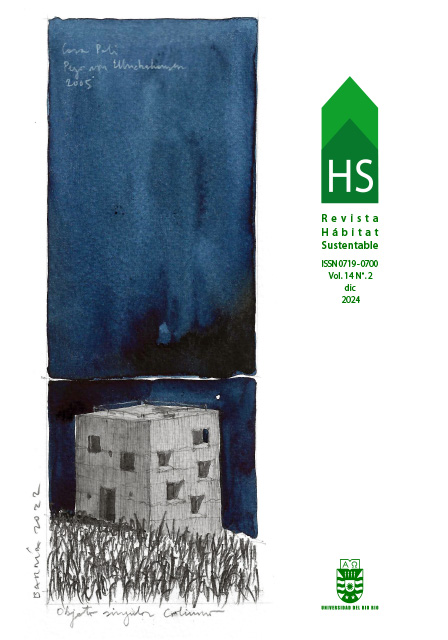
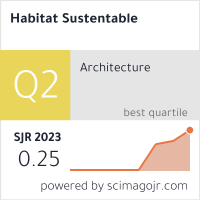






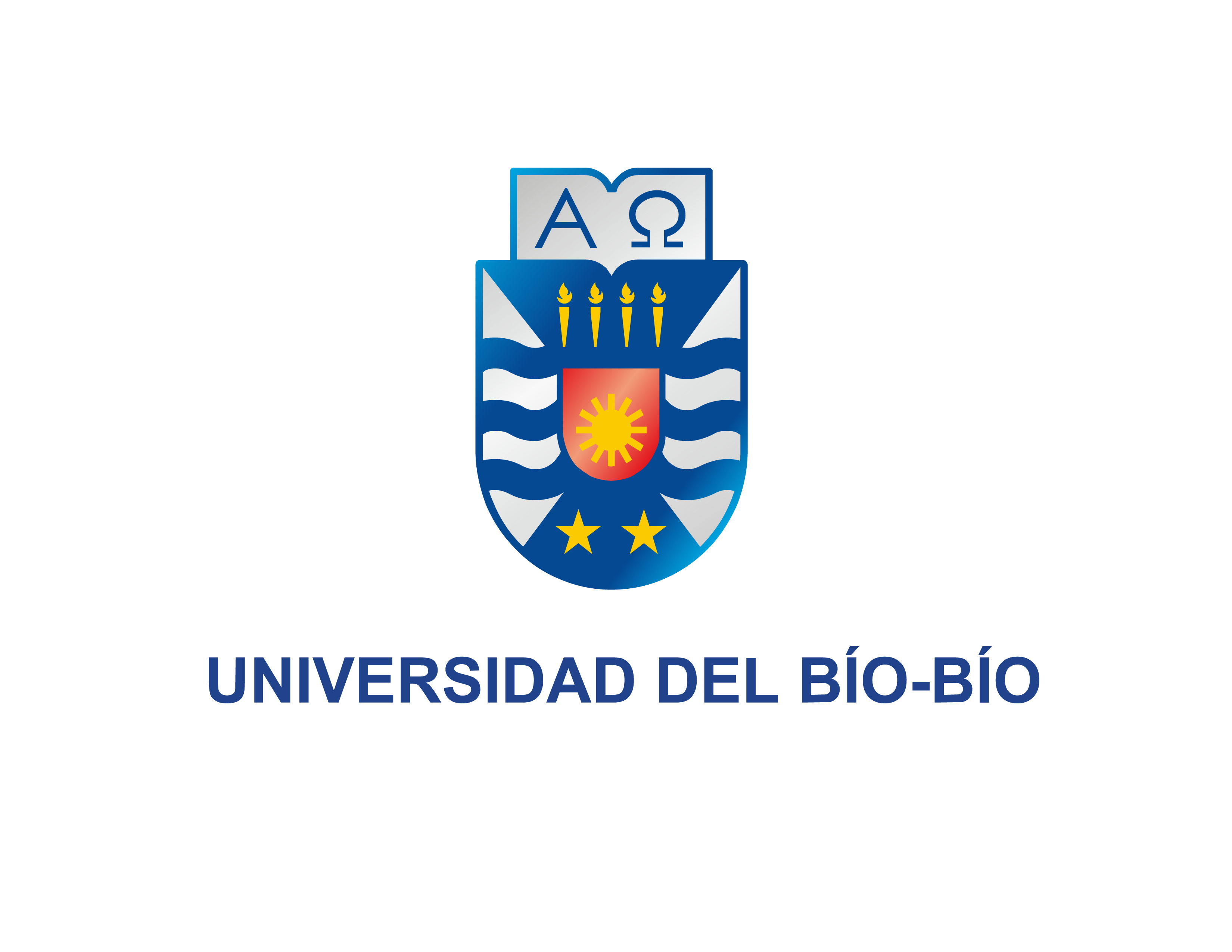

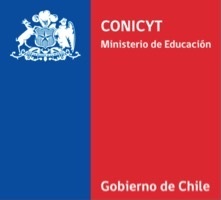 Programa de Información Científica/Concurso Fondos de Publicación de Revistas Científicas 2018/ Proyecto Mejoramiento de Visibilidad de Revistas UBB (Código:FP180007)
Programa de Información Científica/Concurso Fondos de Publicación de Revistas Científicas 2018/ Proyecto Mejoramiento de Visibilidad de Revistas UBB (Código:FP180007) 
